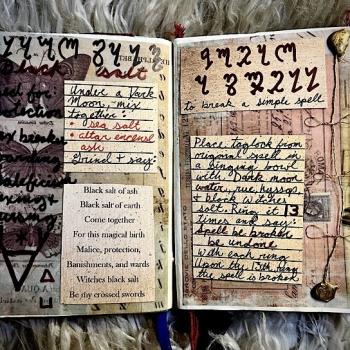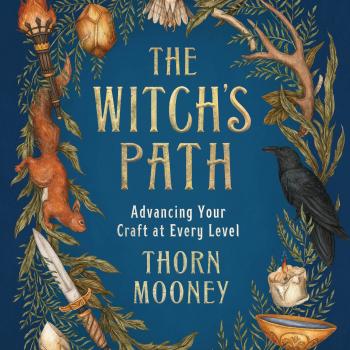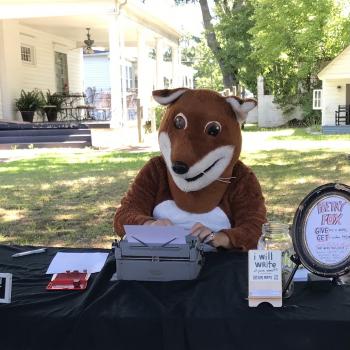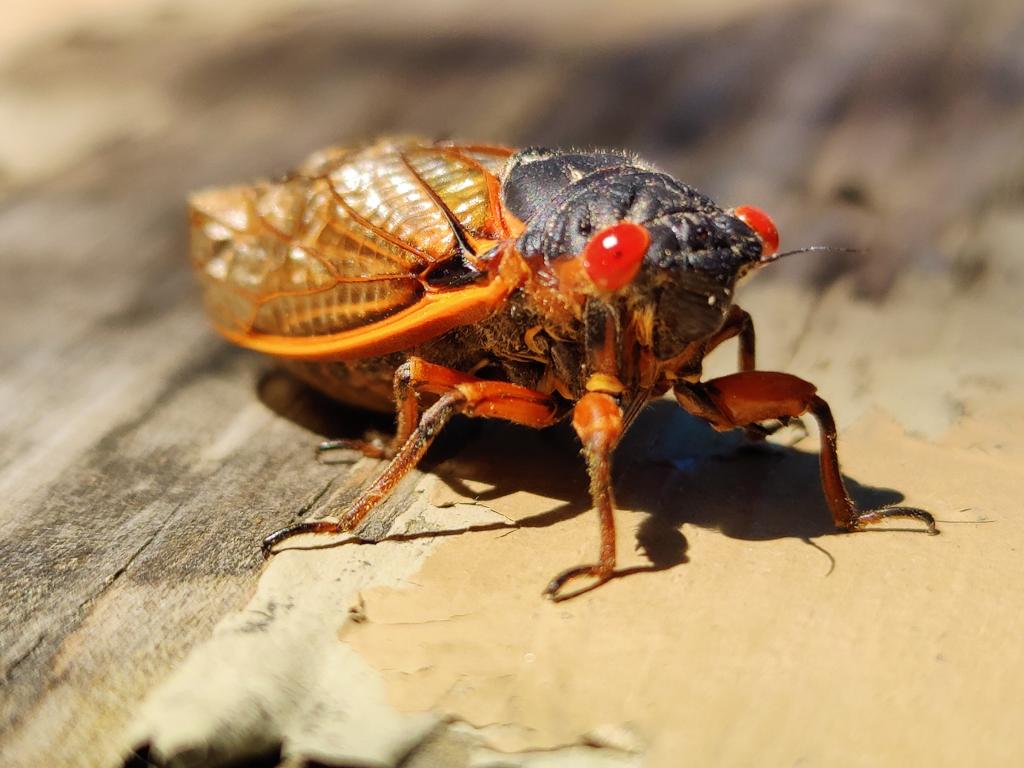Any time I write about ritual nudity, conversation about the downsides of group work always ensues. Nudity and sexuality are touchy subjects because there’s a lot of room for abuse, power-tripping, etc. When I write as a proponent of skyclad practice (and magical sexiness generally)—when I describe the emotional and magical benefits within my own tradition and private practice—it’s not to dismiss the reality that some groups and individuals are just terrible. “Terrible” includes a variety of infractions, spanning the mildly irritating to holy-shit-call-the-police. Because of this reality, I present to you a guide that will hopefully make navigating things a little bit easier:
Everyone’s heard horror stories about what can happen to hapless seekers who stumble into unscrupulous teachers and covens. Unfortunately, Pagan, witch, and other occult communities sometimes act as a refuge for the unsavory. Our collective openness to the marginalized (because of our own experiences being marginalized) and our penchant for tolerance (because of our own desires for tolerance) mean that we’re hesitant to exclude. On more than one occasion I’ve witnessed predatory interlopers show up at open circles or festivals for the sake of harassing young women. More common are the self-appointed Occult Adepts™ and Witch Queens™ advertizing online (and sometimes in the flesh) for students—Wiccan initiations for the low-low price of $200!—who don’t have the credentials or experience they claim. Sometimes they’re out for your money, but most of the time they’re just out for the power that being a high priest or priestess appears to command. At best, they waste your time. At worst (well, one version of worst), they leave you with long-term scarring that causes you to reject magical communities in the future.
![A scene from the Covenstead. [Framed art by Madame Talbot's Victorian Lowbrow, available at www.madametalbot.com]](https://wp-media.patheos.com/blogs/sites/540/2015/04/IMG_5984-e1430075254896.jpg)
The rest of the good news is that problem groups and people are often fairly easy to spot and avoid. You can generally rely on the sort of common sense things that you apply to other social situations:
• If someone sketches you out on a visceral level, avoid them. You don’t have to give people the benefit of the doubt just because they’re Pagan and you think Pagans are supposed to be gentler and kinder than the world at large. Pagans are human beings, and sometimes human beings are awful. Fact.
• All of the stranger danger stuff that you learned growing up still applies in Pagan spaces. When meeting someone for the first time, proceed with caution. Ask if you can bring a friend and be sure to meet in a public space. Know the area. Fill your gas tank. Make sure someone else knows where you’re going. Be moderate with alcohol (etc.). Don’t overshare personal details. It’s not paranoia; it’s smart. Other reasonable people won’t be offended by your precaution.
• Understand that “credentials” and “experience” are subjective. There’s no witch council (again) handing out membership cards or administering aptitude tests. Degrees and titles are only actually relevant within the contexts of the traditions that value them (and it’s perfectly acceptable to ask around for a vouch or character reference within those traditions and wider communities). Anyone can tack letters after their name or purport to be a high priestess, a third degree, an adept, a hereditary witch, or whatever else. If someone strikes you as incompetent or unethical, it doesn’t really matter what titles they have (whether or not they’re legitimate) and where they’ve come from.
• Google is your friend. Books are even better friends. Other people in your wider communities are spectacular friends. If you’re interested in a particular tradition, try to learn as much about it as possible before you start talking to potential groups. Then, when you meet an allegedly Gardnerian coven that demands that you fork over cash for an initiation, you can respond with the appropriate “hell no” and go about your day. If you can come up with a general idea of what the customs and expectations for a particular tradition are, you can be appropriately suspicious when confronted with something that deviates wildly.
• Use those same Google skills to check out the people in your potential group. You would be amazed what can turn up (just for fun, Google your own e-mail address and name and see what happens).
• Drama is largely optional. If you find that the group or teacher in question is constantly embroiled in some kind of public social turmoil, consider this a red flag. If lots of people are quick to say negative things, you hear wild stories about various and sundry misdeeds, or their previous groups have blown up, proceed with caution. Is there lots of passive-aggressive vaguery on their website (including Facebook) about other individuals or groups? Do people sigh and roll their eyes when you mention them? These are warning signs.
• Look for leaders that more or less have their lives in order. We’re still just people, so it’s unreasonable to look for perfection, but the folks you trust with your spiritual and/or magical development should be relatively capable and mature. Is their home safe and livable? Are their children being properly cared for? Are they reasonably employed and stable? Are they mean to the dog or rude to the waiter?
• Be very wary of any group that offers you initiation or dedication immediately. Sometimes there are circumstances that allow for this (I guess), but this is almost always a red flag. Vetting for initiation is a process. Training is a process. Learning a tradition is a process. Becoming an effective high priestess or high priest is a long process. If it’s offered to you instantly, it’s almost surely not worth having.
• Becoming a student in a coven or tradition does not require the sacrifice of your adulthood or the agency that entails. Remind yourself that you retain the right to say no. Just like sex, it is your right to withdraw consent at any moment. In abusive relationships, one often loses agency slowly. One day you wake up and realize that you don’t remember how to say no, and aren’t even sure if you want to because of what might happen. If your life ever even remotely hints of this sort of scenario, get help and get out as soon as possible.
Use your good sense. Take your time. You’re better off being alone than joining a coven just because it’s the only one available. Joining a coven should never be an emergency situation. Remember: you’re interviewing them just as they’re interviewing you. You’re allowed to fire them.
















